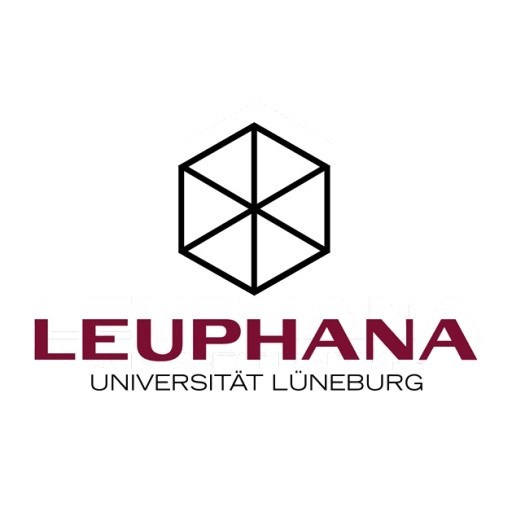Photos of university / #uni_fau
The MA Human Rights addresses the growing importance of human rights in all areas of society and academia. The course programme covers fundamental challenges as well as current issues. It pursues an interdisciplinary approach by taking the political, philosophical, and legal dimensions of human rights into account. Graduates of the programme will be equipped with theoretical and practical skills to pursue professional activities in human rights contexts.
In the first semester, all students will enrol in three compulsory modules covering political, philosophical, and legal foundations of human rights respectively. In the second semester, students will participate in a compulsory, interdisciplinary module on non-discrimination and may elect four out of the following special modules: Economic, Social and Cultural Rights; Business and Human Rights; Freedom of Religion and Belief; Gender and Human Rights; International Criminal Law; Transitional Justice; Human Rights of Refugees and Rights of Persons with Disabilities.
In the first semester, all students will enrol in three compulsory modules covering political, philosophical, and legal foundations of human rights respectively. In the second semester, students will participate in a compulsory, interdisciplinary module on non-discrimination and may elect four out of the following special modules: Economic, Social and Cultural Rights; Business and Human Rights; Freedom of Religion and Belief; Gender and Human Rights; International Criminal Law; Transitional Justice; Human Rights of Refugees and Rights of Persons with Disabilities.
Educational organisation
First semester: foundations (total: 30 ECTS)Module 1: Human Rights Politics (10 ECTS)
- Political Dynamics of Human Rights
- Empirical Analysis of Human Rights Politics
- Human Rights - Foundations and Criticisms
- Universalism and Relativism
- Legal and Institutional Protection of Human Rights
- Leading Cases of Human Rights Law
Second semester: specialised courses (total: 30 ECTS)
Module 4: Non-Discrimination (10 ECTS)
- Interdisciplinary Seminar on Non-Discrimination
- Working groups
Module 5: Economic, Social and Cultural Rights (5 ECTS)
Module 6: Business and Human Rights (5 ECTS)
Module 7: Freedom of Religion and Belief (5 ECTS)
Module 8: Gender and Human Rights (5 ECTS)
Module 9: International Criminal Law (5 ECTS)
Module 10: Transitional Justice (5 ECTS)
Module 11: Human Rights of Refugees (5 ECTS)
Module 12: Rights of Persons with Disabilities (5 ECTS)
Third semester: Master's thesis (total: 30 ECTS)
Forms of assessment
All three modules in the first semester will be assessed by written exams (each module 10 ECTS).Module 4 will be assessed by a presentation (20 minutes) and term paper (20 pages) (10 ECTS).
Modules 5, 6, 7, 8, 10 will be assessed by a presentation (20 minutes) and term paper (20 pages) (each module 5 ECTS).
Modules 9, 11, 12 will be assessed by a written exam (90 minutes) (each module 5 ECTS).
Course objectives
The graduate is educated and qualified as practitioner in public administrations, international and non-governmental organisations, academia and education, the media, interest groups and associations as well as in specialised law firms and corporations.Language requirements
Applicants must provide proof of their English language competence, equivalent of C1 of CEFR (Common European Frame of Reference), e.g. UNIcert® III, TOEFL: 90 iBT or 33 CBT or 577 PBT, IELTS: 6.5, TOEIC: 850, Cambridge Advanced Certificate (CAE), Business English Certificate (BEC): Higher, LCCI Examinations Board: Level 3, TELC English C1, TELC English C1 Business, TELC English C1 University.Academic requirements
Admission to the Master's programme Human Rights requires a university degree based on at least 3.5 years of full-time study (equivalent to 210 ECTS) and at least one year of professional experience in the area of human rights, or professional experience in another field in combination with practical experience in human rights work on a volunteer basis.If your university degree is based on less than 3.5 years of study, you may be accepted on the basis of a special procedure determining additional qualifications.
Enrolment fees
The contribution to student services currently amounts to 42 EUR per semester. An additional charge of 70 EUR per semester covers the mandatory basic "semester ticket", a transit pass that provides students with unlimited access to public transport in the metropolitan region of Nuremberg from 7pm to 6am on weekdays and at all times at weekends. (For an additional optional charge, the validity of the pass can be extended to 24 hours a day, seven days a week.)Costs of living
The cost of living can only be approximated very generally, as the needs and living conditions of every student are different.Rent: 250-600 EUR per month
Health insurance, doctor, medicine: approximately 70 EUR per month
Food: approximately 165 EUR per month
Study materials: approximately 30 EUR per month (depending on the subject)
Transport: minimum 70 EUR per semester
Student services: 42 EUR per semester
For more information, see: http://www.fau.eu/study/prospective-students/financing-your-studies/costs-of-studying
General information on the average cost of living in Germany is available online: http://www.internationale-studierende.de/en/prepare_your_studies/financing/costs_of_living
Funding opportunities within the university
The Central Office for International Affairs offers scholarships from Bavarian state funding to allow highly qualified international students in Master's, "Diplom", and State Exam degree courses to complete their degrees.http://www.fau.eu/international/international-applicants/bachelors-masters-state-examinations/during-your-studies/scholarships-for-international-students-about-to-graduate/
Services and support for international students
The Student Advice and Career Service (IBZ) will provide you with detailed information on all important topics relating to your studies (study courses, subject combinations, application requirements, support with organising your study programme and complying with all assessment/examination requirements) and on settling in at the beginning of the semester (coping with particular difficulties, changing subjects or suspending studies). For more information, see http://www.fau.eu/study/prospective-students/student-advice.The Career Service of FAU will provide you with information on career opportunities and the specifics of an application procedure in Germany. For information, see: http://www.fau.eu/study/current-students/career-service.
The Student Service Centres (SSC) and student advisers in the faculties will provide you with further advice on your particular course of study. Programme coordinators organise subject-related orientation events and guide you through the entire study period.
The Central Office for International Affairs (RIA) will provide you with detailed information on accommodation, visa issues, and scholarship possibilities. In cooperation with the IBZ, it also organises information events and general orientation courses for first-semester-students.
See: http://www.fau.eu/international/international-applicants.
The Alumni network provides students with many topics and events for professional advancement. See: http://www.fau.eu/alumni.
Accommodation
Erlangen and Nuremberg are attractive cities with a historic flair and modern infrastructure. Therefore, the housing market is quite tight. FAU will do its best to assist new students in finding accommodation.Student halls in Erlangen and Nuremberg can only provide accommodation for a small number of students. Another option is the private housing market. If you extend your search to neighbouring towns, such as Fürth and Forchheim, your choice of accommodation is much larger and rents are lower, while the well-developed local public transport system ensures that you're never far away from the university. In addition, there is the option to sublet a room, or you can share a flat with other students. This option not only saves you money but also helps you settle in quickly and make friends in your new home. You can find information to help with your housing search on specialised websites and the university's notice boards.
Detailed information on finding accommodation is available at http://www.fau.eu/international/international-applicants/important-information.
If you need further assistance, you can also turn to the Accommodation Service of the Central Office for International Affairs (RIA). E-mail: accommodation@fau.de.







